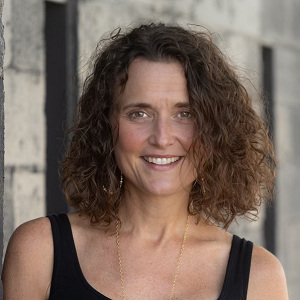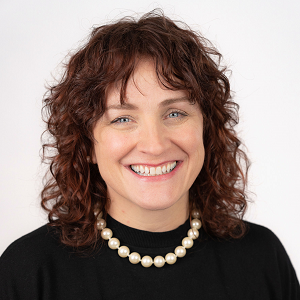Top-Level Takeaways
- Community Financial Credit Union has taken a significant step forward in consumer protection by eliminating or reducing fees.
- By adopting this fee-free model, the credit union sets a precedent in the industry, encouraging other financial institutions to reconsider their fee structures, prioritize member-centric practices, and promote transparency and fairness in banking.
The Biden administration calls them “junk fees,” but at Community Financial Credit Union ($1.6B, Plymouth, MI) a new framework provides valuable services at a reasonable price.

Junk fees and nonsufficient funds have been a hot topic. In the first quarter of 2024, the NCUA started requiring federally insured credit unions with more than $1 billion in assets to disclose, separately, income from overdraft and NSF fees on the 5400 Call Report. With first quarter totals topping $915 million, the discussion surrounding fees and consumer impact will continue.
For Community Financial, now is the time to get ahead of potential regulatory or legislative changes.
“We were hearing a lot of conversations from politicians and regulators about junk fees,” says Tansley Stearns, CEO at Community Financial. “We’d rather stand with our members and get ahead of that change than wait for potential new legal or regulatory requirements that might occur down the road.”
The Michigan cooperative is keenly aware women are one of the major decision-makers for their households. It also recognizes the persistent gender inequity issues around these kinds of fees and wanted to find a solution that was right for both the organization and its members.
“We wanted to be leaders in this area and walk the walk,” Stearns says.
The credit union’s leadership team dedicated time during its quarterly strategic cycle meeting on Feb. 5, 2024, to talk about how Community Financial could address overdraft and NSF fees. Blake Woods, vice president of insights, innovation, and impact for the cooperative, conducted research ahead of time to offer choices as well as insights into possible solutions, and the team wrapped the meeting with a clear understanding of the direction it wanted to take.
A Simple, Yet Impactful Design
On April 1, 2024, CFCU launched CloseEnuff, a cashflow-boosting checking account designed to help members collectively save an estimated $1.2 million a year.
With CloseEnuff — which is a standard feature in CFCU’s checking accounts — the credit union does not charge members an overdraft or NSF fee if they overdraw their account by less than $50. CFCU also eliminated its previous overdraft transfer fee of $4 and reduced its NSF fee from $25 to just $9. That’s now all members pay if they exceed the $50 safe zone. For those who previously opted in and qualified for courtesy pay, their cushion has increased from $5 to $50.

In terms of implementation, there wasn’t a lot of work required from a programming perspective.
“Telling our core when not to charge fees and preparing our various internal teams for the changes was the biggest part,” says Danielle Milner, chief experience officer. “There was very little work on the back end.”
From a change leadership standpoint, CFCU’s team was enthusiastic about the new approach.
“Our team gets tons of feedback about things like fees,” Stearns says. “To be able to share this news with them was really positive.”
Number Crunching
“As an organization and as an industry, we have to be paying attention to revenue sources other than fees,” the CEO continues.
CU QUICK FACTS
COMMUNITY FINANCIAL CREDIT UNION
DATA AS OF 03.31.24
HQ: Plymouth, MI
ASSETS: $1.6B
MEMBERS: 83,566
BRANCHES: 14
EMPLOYEES: 366
NET WORTH: 9.8%
ROA: 0.25%
Conceptually, CFCU knew the direction it wanted to take, but its leaders had to sharpen their pencils to determine whether proposed changes were reasonable.
“We looked at our forecast and were able to make some adjustments to our plans and some concessions to ensure these changes wouldn’t have a negative impact on the organization,” Stearns says.
In the long-term, CFCU expects the work it’s doing through its CUSO and other alternative revenue sources will add perks to membership while helping the credit union diversify its revenue. For example, the credit union recently launched a Buy Now, Pay Later tool to provide members more flexibility in their cash flow.
“We’re looking at the way the entirety of our offerings come together for members,” Stearns says.
To that end, CFCU is marketing CloseEnuff as a cashflow account that focuses on women, as NSF fees disproportionately impact them. It’s primarily targeted toward non-members, although driving awareness around the new benefits for all members has been a lever for new referrals as well.
Is Your Fee Strategy Alinged With Your Values? Callahan & Associates’ non-interest income program allows credit unions to monitor industry trends, dive into historical data, anticipate future performance, compare performance against others, and develop informed strategies to improve revenue. Learn how to gain free access to this exclusive data set. Access NII Data Today.
Success And Future Plans
One of CFCU’s main goals for CloseEnuff is to grow checking accounts, especially in the current, liquidity-constricted environment. The credit union hasn’t historically focused on core deposit relationships, so it tends to underperform its peers in this area. With programs as robust as CloseEnuff, though, CFCU hopes to earn members’ trust and increase loyalty.
So far, the member impact is impressive. From April 1, 2024, through May 27, 2024, CFCU has saved 3,286 members $149,373.50 in overdraft fees, eliminated $37,944 in transfer fees for 1,700 members, and reduced the cost of 3,080 NSF fees.

According to Stearns, credit unions can make a major impact when they decide to head in a different direction and eliminate exploitative fees rather than find new ways to charge consumers.
“Paul Kundert, CEO of UW Credit Union, has been a leader in this regard,” Stearns says. “We consider him a visionary in terms of being able to see this early.”
In terms of future plans, CFCU uses data to monitor and iterate. The team will closely watch several signals, including checking account growth, usage, and insights from members.
“We do a lot of focus groups and surveys throughout the year,” Stearns says. “Listening to those insights is powerful.”
And one member comment regarding CloseEnuff speaks volumes: “I know I speak for everyone who is financially struggling when I say your policy change is life changing. Truly. I worked in banking for years. I’ve seen what high overdraft fees do to those already struggling.”